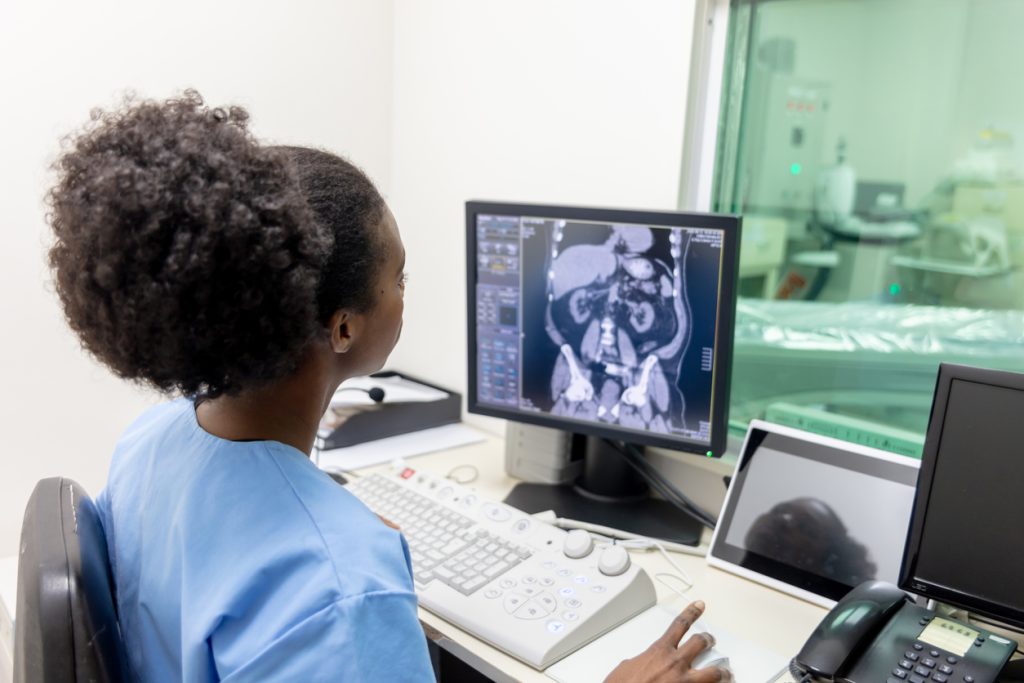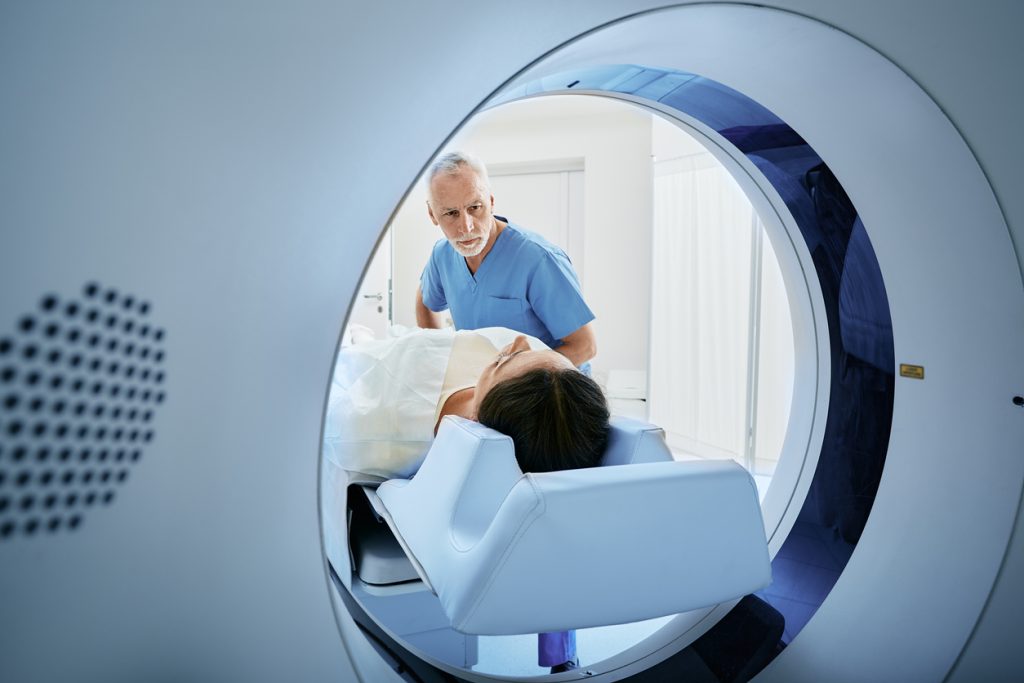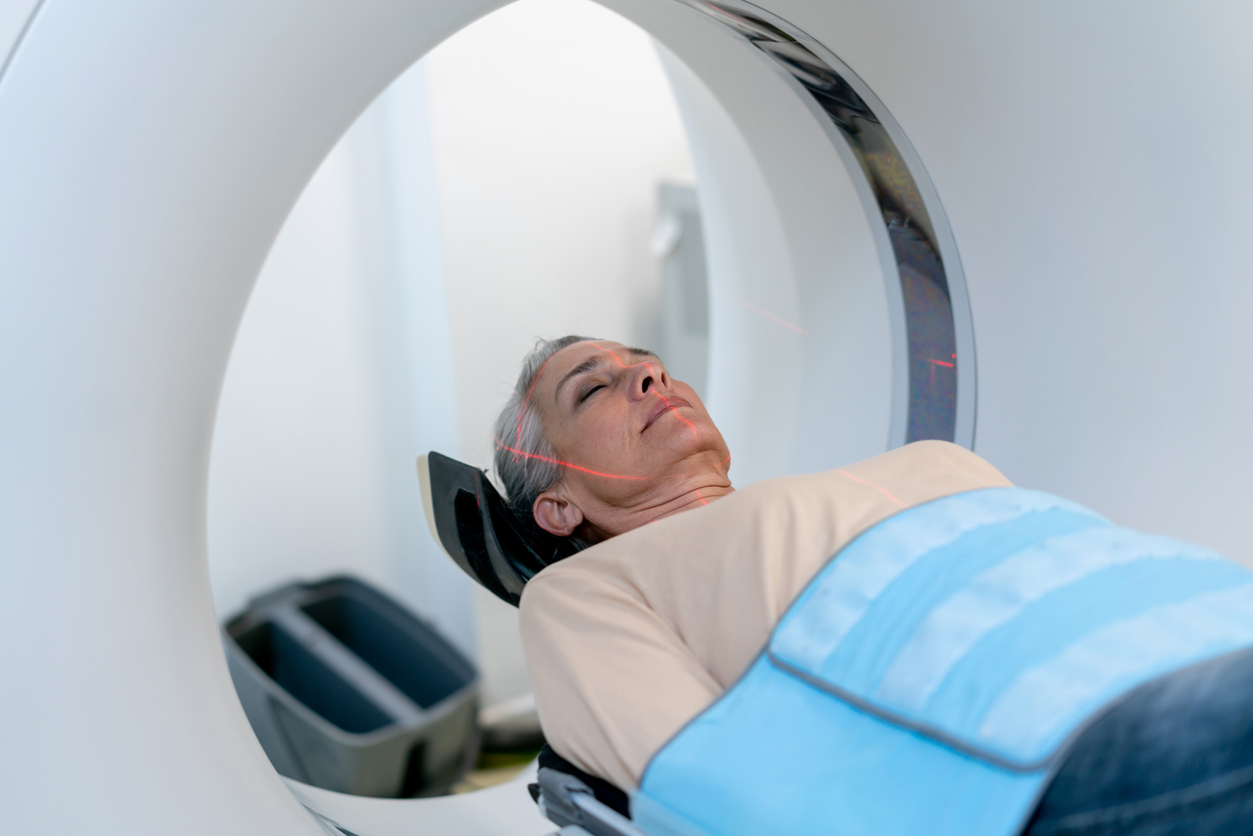A Computed Tomography scan (CT scan) is a useful diagnostic tool in many areas of medicine. The scan gives doctors detailed images that can help them identify problems and abnormalities effecting bones, organs, blood vessels, muscles, and other internal structures. During the 15-20 minute procedure, the patient will have to lie very still. However, the procedure itself is not painful.
How does a CT scan work?

A CT scan is a computerized x-ray imaging procedure. The scanning machine rotates around the body as the machine takes narrowing beams of x-rays from all angles. The x-ray data is sent to a computer that puts it into detailed 3-D images. These cross-sectional images give doctors more precise information than conventional x-rays.
With or Without Contrast?
CT scans may be done with or without a contrast agent. It is easier to see images of soft tissue with contrast. Some contrast agents, such as barium compounds, may be taken orally. Other contrast agents, such as iodine-based contrast, are given intravenously. A CT Myelogram uses a contrast dye that is injected into the cerebrospinal fluid. This procedure is done to better see the spinal canal, spinal cord, and nerve roots.
How Neurosurgeons Use CT Scans
The neurosurgeons at Atlanta Brain and Spine Care often use CT scans for diagnostic purposes. Patients suffering from acute head trauma or stroke are often evaluated in emergency rooms using CT scans. In these cases, physicians are looking for bleeding between the brain tissue and the skull. A CT scan is also useful in diagnosing hydrocephalus, the buildup of fluid within the ventricles of the brain.
CT scans may be used to assess conditions affecting the spine including herniated discs, degenerative disc disease, stenosis of the spinal canal, tumors, vertebral fractures, osteoporosis damage, spinal stenosis, and spinal cord trauma. CT scans are also used along with other diagnostic tools including MRIs and ultrasounds.
Do CT scans pose radiation risks?

Patients may have concerns about the risks associated with radiation from a CT scan. The risk is very small from a single CT scan. The amount of radiation used is considered to be minimal. The benefits of CT scans far outweigh any cancer risks associated with radiation exposure. In addition, CT scans have greatly reduced the need for exploratory surgeries that were once considered commonplace.
CT scans may be safely performed on pregnant women, if the abdomen or pelvis are not being scanned. Children are more sensitive to the affects of radiation than adults. Parents need to weigh the benefits and risks to their child. However, in some cases, a CT scan will give doctors the best information.
Atlanta Brain and Spine Care
Our neurosurgeons offer patients access to some of the world’s most advanced treatments and procedures in five convenient metro locations. Contact us to schedule a consultation with a spine specialist.


